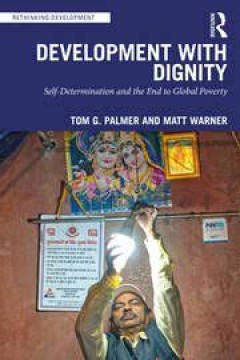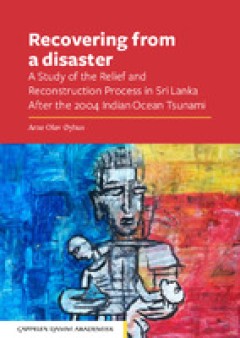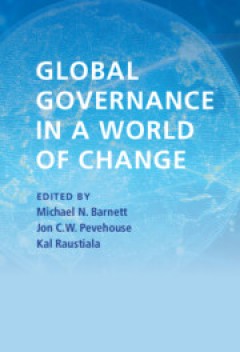Filter by

Global governance in a world of change
Global governance began in the mid-nineteenth century and accelerated after the First World War. But it came of age in the post-Second World War era. In response to the lessons learned from the collapse of international order between the wars, and the need to rebuild after the devastation wrought by the Second World War, states, with the USA in the lead, set out to create a new and comprehe…
- Edition
- -
- ISBN/ISSN
- 9781108843232
- Collation
- pages cm
- Series Title
- -
- Call Number
- 341.2 BAR g

Community development and schools: conflict, power and promise
"This book lays out the promise and potential of schools as community building institutions. It explores the challenges faced in incorporating schools into broader community development policy. It recognizes the changing demographics of schools and the need to integrate schools with economic development policy in order to promote broader community development. The book includes chapters on tax …
- Edition
- -
- ISBN/ISSN
- 9781003463412
- Collation
- xvi, 160 pages : illustrations
- Series Title
- Community development research and practice
- Call Number
- 307.1 WAR c

Unauthorized access : the crisis in online privacy and security
Going beyond current books on privacy and security, Unauthorized Access: The Crisis in Online Privacy and Security proposes specific solutions to public policy issues pertaining to online privacy and security. Requiring no technical or legal expertise, the book explains complicated concepts in clear, straightforward language. The authors two renowned experts on computer security and law explore…
- Edition
- 22
- ISBN/ISSN
- 9781138436923
- Collation
- xxiii, 401 p
- Series Title
- -
- Call Number
- 323.4302854678 ROB u

Social Networks and Health Inequalities: A New Perspective for Research
This open access book applies insights from the network perspective in health research to explain the reproduction of health inequalities. It discusses the extant literature in this field that strongly correlates differences in social status with health behaviours and outcomes, and add to this literature by providing a coherent theoretical explanation for the causes of these health inequalities…
- Edition
- -
- ISBN/ISSN
- 9783030977221
- Collation
- VI, 343p; ill
- Series Title
- -
- Call Number
- 306.461 AND s

Development With Dignity : Self-determination, Localization, and the End to P…
At a time when the global development industry is under more pressure than ever before, this book argues that an end to poverty can only be achieved by prioritizing human dignity. Unable to adequately account for the roles of culture, context, and local institutions, today’s outsider-led development interventions continue to leave a trail of unintended consequences, ranging from wasteful to e…
- Edition
- -
- ISBN/ISSN
- 9781003229872
- Collation
- xvii, 203p ; ill.
- Series Title
- Rethinking Development
- Call Number
- 338.90091724 PAL d

Technologies and applications for big data value
This open access book explores cutting-edge solutions and best practices for big data and data-driven AI applications for the data-driven economy. It provides the reader with a basis for understanding how technical issues can be overcome to offer real-world solutions to major industrial areas. The book starts with an introductory chapter that provides an overview of the book by positioning the …
- Edition
- -
- ISBN/ISSN
- 9783030783075
- Collation
- xxiv, 544p.; ill.
- Series Title
- -
- Call Number
- 005.7 TEC t

Electricity access, aecarbonization, and integration of renewables
- Edition
- -
- ISBN/ISSN
- 9783658382155
- Collation
- xii; 280 pg; ill.
- Series Title
- Energiepolitik und Klimaschutz. Energy Policy and Climate Protection
- Call Number
- 333.791 ELE e
- Edition
- -
- ISBN/ISSN
- 9783658382155
- Collation
- xii; 280 pg; ill.
- Series Title
- Energiepolitik und Klimaschutz. Energy Policy and Climate Protection
- Call Number
- 333.791 ELE e

Recovering From a Disaster; A study of The Relief And Reconstruction Process …
On 26 December 2004 at 6.58 hours (Sri Lanka Time), a massive earthquake with its epicentre outside the coast of Sumatra generated a series of gigantic waves, tsunamis. At 8.35 hours the waves reached the eastern and southern coastline of Sri Lanka, crushing hundreds of villages and towns, killing and maiming tens of thousands of people within seconds. When the waves pulled back, and the ocean …
- Edition
- -
- ISBN/ISSN
- -
- Collation
- -
- Series Title
- -
- Call Number
- -

Impermanence : exploring continuous change across cultures
Nothing lasts forever. This common experience is the source of much anxiety but also hope. The concept of impermanence or continuous change opens up a range of timely questions and discussions that speak to globally shared experiences of transformation and concerns for the future. Impermanence engages with an emergent body of social theory emphasizing flux and transformation, and brings this in…
- Edition
- -
- ISBN/ISSN
- 9781787358690
- Collation
- xiii, 364p. ill;
- Series Title
- -
- Call Number
- 294.342 IMP H

Global governance in a world of change
Global governance has come under increasing pressure since the end of the Cold War. In some issue areas, these pressures have led to significant changes in the architecture of governance institutions. In others, institutions have resisted pressures for change. This volume explores what accounts for this divergence in architecture by identifying three modes of governance: hierarchies, networks, …
- Edition
- -
- ISBN/ISSN
- 9781108915199
- Collation
- xii, 381 p. : ill.
- Series Title
- -
- Call Number
- 341.2 BAR g
 Computer Science, Information & General Works
Computer Science, Information & General Works  Philosophy & Psychology
Philosophy & Psychology  Religion
Religion  Social Sciences
Social Sciences  Language
Language  Pure Science
Pure Science  Applied Sciences
Applied Sciences  Art & Recreation
Art & Recreation  Literature
Literature  History & Geography
History & Geography